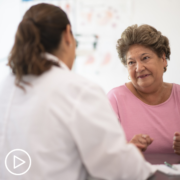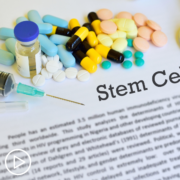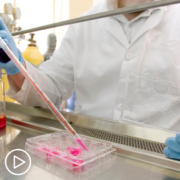Myeloma Treatment: Who Is Stem Cell Transplant Appropriate For?
Myeloma Treatment: Who Is Stem Cell Transplant Appropriate For? from Patient Empowerment Network on Vimeo.
Stem cell transplant can be an effective and viable myeloma treatment, but who is the treatment appropriate for? Expert Dr. Jeffrey Matous explains how stem cell transplants work and reviews factors that must be considered when determining if a patient is a candidate for this treatment option.
Dr. Jeffrey Matous is a myeloma specialist at the Colorado Blood Cancer Institute and the assistant chair in myeloma research for Sarah Cannon Research Institute. Learn more about Dr. Matous.
Related Resources:

|

|
Transcript:
Katherine:
Stem cell transplant is often considered for myeloma patients. Can you talk about who this treatment option might be appropriate for?
Dr. Jeffrey Matous:
Absolutely, so we’ve known for decades that, what I call high-dose chemotherapy, also called stem cell transplant, is a very effective and very potent treatment of myeloma and we’ve shown that time and time again in clinical trials, including some recent ones that are published just in 2022.
And so, high-dose chemotherapy and stem cell transplant is not for everyone. You have to be fit enough to undergo it, and this is not age-determined. It’s fitness-determined. And then, a lot of people live a long way from centers that perform high-dose chemotherapy and stem cell transplants.
If patients have to travel hundreds of miles, then sometimes that comes into play. “Hey, I just can’t do this. I can’t get the time off, and uproot, and bring a caregiver, and travel 300 miles to get this care,” so sometimes that comes into play. Physician bias definitely comes into play. We know that some physicians are stronger proponents of high-dose chemotherapy and stem cell transplant, and I fall into that category, but we have other physicians that may not even bring it up as an option to their patients. We know, for example, that African Americans and other minorities are notoriously under-referred for high-dose chemotherapy and stem cell transplant. A lot of decisions go into that, and again, this is one of those situations where if you’re transplant-eligible, that means you’re young and vigorous, and on paper, a candidate. You want to go, at the very minimum, consult with physicians that do high-dose chemotherapy and stem cell transplant and hear about that option.











